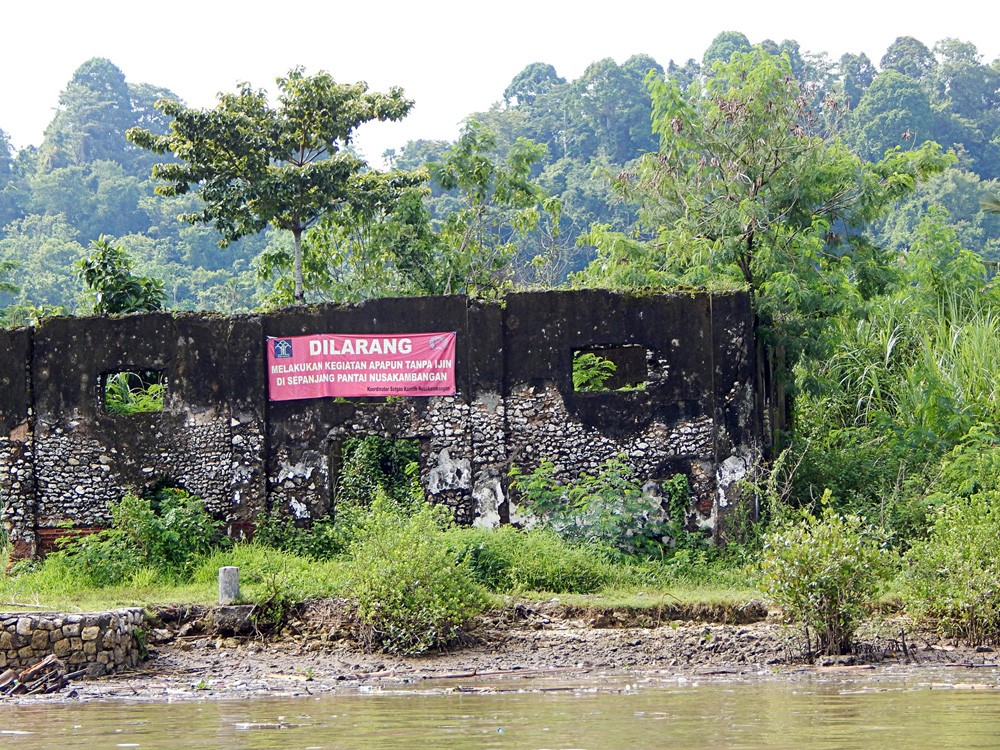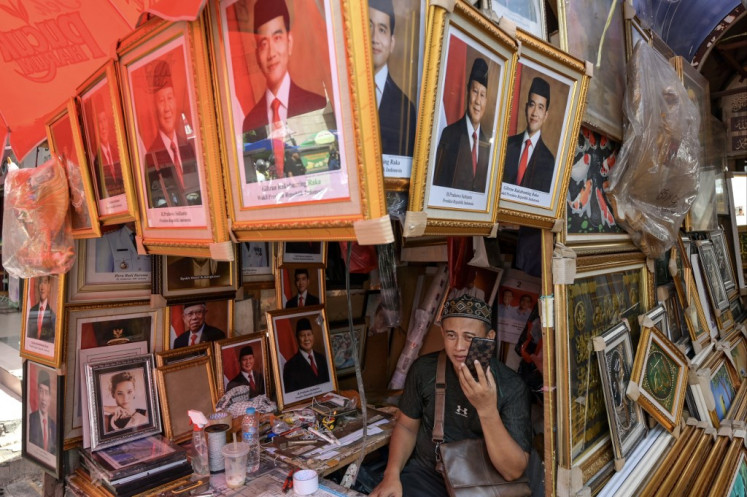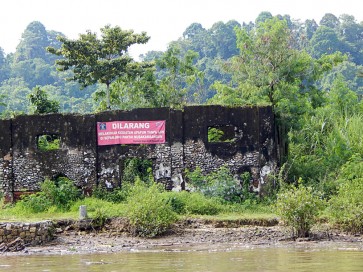Danger of terrorist recidivism in prisons
Prisons provide a place for networking in which extremist recruiters can promote a radical discourse about religion and politics.
Change Size
 Maximum security – This pictures shows an old, damaged building on the edge of Nusakambangan prison island, Cilacap, Central Java. Unauthorized people are prohibited to enter the area. It is in the island a terrorist convict, Abu Bakar Ba’asyir, was locked before he was moved to Gunung Sindur prison in Bogor, West Java, on Saturday. (thejakartapost.com/Agus Maryono)
Maximum security – This pictures shows an old, damaged building on the edge of Nusakambangan prison island, Cilacap, Central Java. Unauthorized people are prohibited to enter the area. It is in the island a terrorist convict, Abu Bakar Ba’asyir, was locked before he was moved to Gunung Sindur prison in Bogor, West Java, on Saturday. (thejakartapost.com/Agus Maryono)
I
n September 2015, Afif Sunakim walked out of prison, having served five years of a seven-year sentence for attending a terrorist training camp in Aceh. Within five months, he led the terrorist attack on Jakarta’s Sarinah department store.
Ten months later in November 2016, another convicted terrorist, Juhanda, killed a 2-yearold girl when he threw a Molotov cocktail into a church compound in Samarinda. Juhanda was previously imprisoned for plotting to bomb the Center for Science and Technology Research (Puspitek) and a church in Banten. In total, he served 42 months after receiving three remissions.
These were attacks that Islamic State (IS) group supporters mounted in Indonesia in 2016, both committed by convicted terrorists who had been freed before serving out their full sentences. The victims of the Jakarta and Samarinda attacks should serve as a tragic reminder that Indonesia’s approach to counterterrorism and deradicalization in prison is not bulletproof.
Prisons matter. In the context of deradicalization and counterterrorism, they have the potential to be incubators for either peaceful transformation or radicalization. On the one hand, in prisons, convicts are isolated from their social networks while being confronted with questions about their identity. Prisons provide a place for networking in which extremist recruiters can promote a radical discourse about religion and politics.
On the other hand, prisons also have the potential to facilitate peaceful change. The disengagement of convicts from outside networks can serve as the basis for reversing the process of radicalization.
A strong peaceful discourse inside prisons can undermine extremist campaigns from the outside and provide an alternative basis for a new identity. Indonesia’s current deradicalization program follows this logic. It focuses on three main stages: rehabilitation, re-education and reintegration.
The program aims to moderate convicts’ religious interpretations and equip them with the necessary skills and capital to generate income when they return to society. Looking at the cases of Afif Sunakim and Juhanda, we should ask ourselves: what went wrong?

















